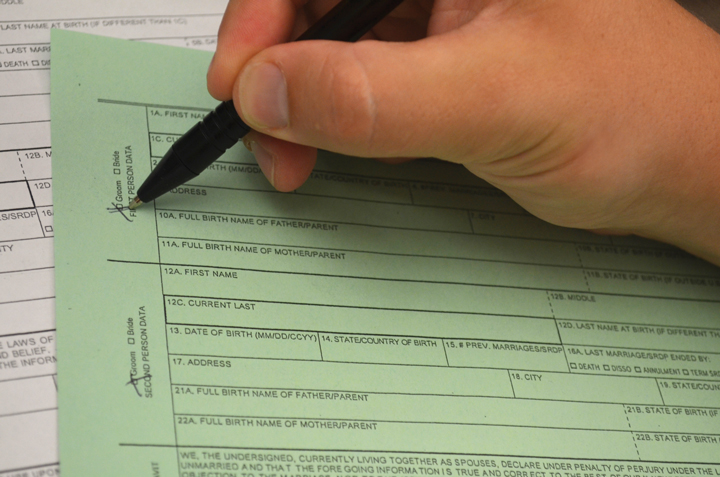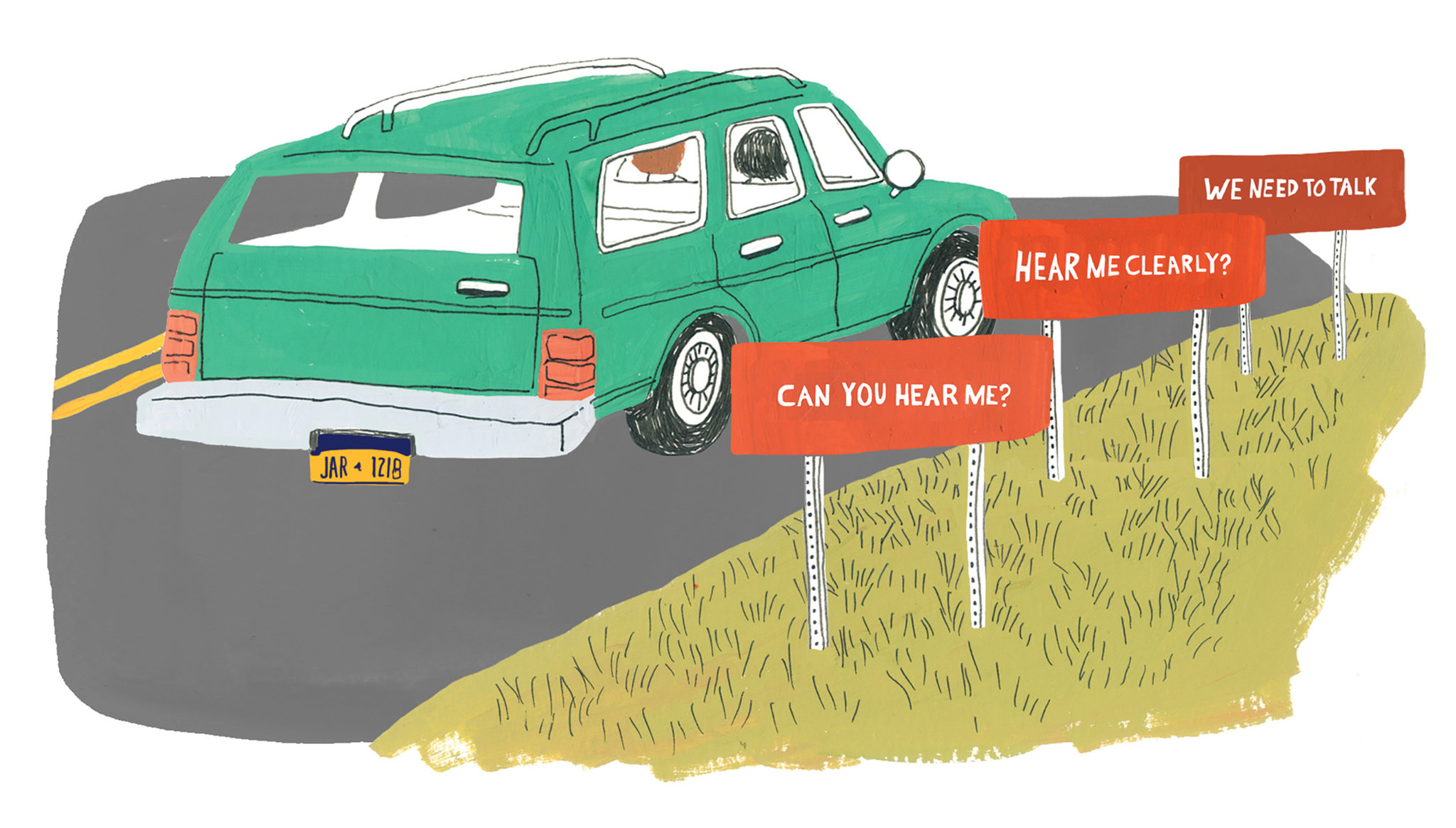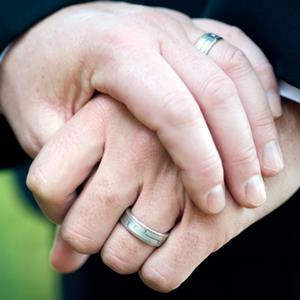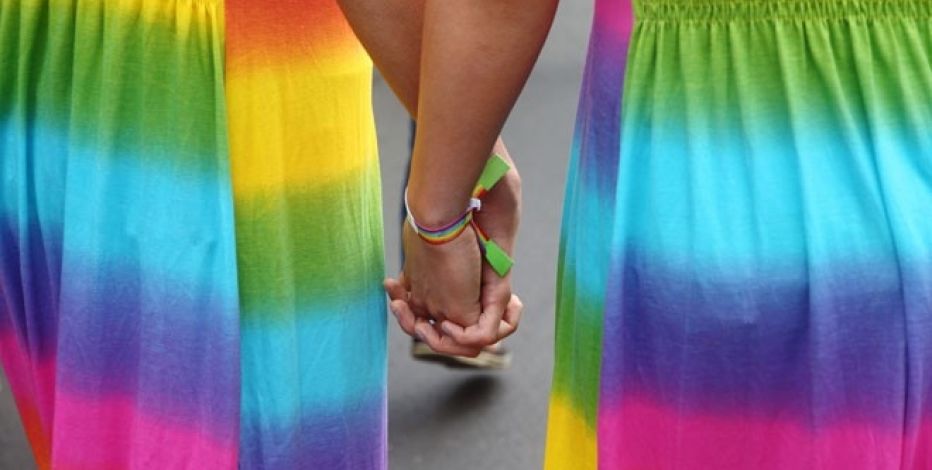When gay marriage was only legal in a very few places, gay divorce rates were very, very low. It made for lots of great news stories about how marriage equality would ultimately create more solid marriages nationwide, which have in recent history waivered at nearly 50 percent. Now that marriage equality has been enacted in so many different states, the statistics have started shifting. And happily-married gay couples are not at all pleased about it.
Frequently, former clients bring issues like this to my attention because they want to see the topic written about and the discussions that follow. In this particular case, a former client brought up the subject of the increase in gay divorces because it’s seriously bothering him.
While he and his husband have been happily married for several years, he has four sets of friends who haven’t been married very long and are currently in serious relationship trouble. Even in today’s society where marriage isn’t forever for so many people, it bothered him that he was close to four relatively-newly-married gay couples who are already getting divorced. That’s a lot of divorce in one social circle at one time.
“I think a lot are marrying for the vanity and to be the center of attention or for the party. Couples that only know each other a few months. You know the gays love a party,” he says. But he’s not joking despite his tone. He points out that gay icons Liz Taylor, Judy Garland and Liza Minnelli had 16 weddings between the three of them. Not the best examples to follow.
“They started to see other gay weddings and they looked like such fun, they wanted their own,” he opines. Next thing you know, couples who have only been together for a short period of time are getting legally married just because they can without giving enough consideration to what the word “marriage” means long term.
“I also don’t think the gays are co-mingling finances the way straights do, so divorce is easier on the financial front and the lack of children helps speed things along.” Basically, he says gay couples have fewer factors to consider when debating fixing or ending a relationship. It’s easier to get out of a gay marriage in most cases. That’s assuming they both still live in a state that acknowledges the legality of their marriage in the first place. When the state doesn’t recognize the union, there’s a whole new list of problems to encounter when splitting the blanket. But that’s a different blog.
He’s also concerned that gay men aren’t taking the vows of marriage as seriously as they should be. And he thinks it’s embarrassing to the marriage equality movement.
“One guy was telling me he was thinking of getting divorced while sitting on another guy’s lap,” was one example he cited. Notoriously “social,” some gay men have continued prior behaviors and not remained monogamous post-wedding ceremony. What was acceptable in the relationship before the wedding may no longer be okay with both partners once they’re wearing rings. This is a discussion to have before you say “I do.” While plenty of married couples (gay and straight) have “understandings” or “open marriages,” that’s something that has to be agreed upon by both partners before either one of them steps out on the other. Otherwise, it’s justified grounds for divorce.
Even more irritating to some is the fact that many single gay men appear not to understand that married gay men are off limits once they’ve gotten married. This problem with promoting infidelity is not new, according to my gay friends. In fact, more than one of them tell stories about gay friends who ask about their straight friends, only to be told “he’s married with three kids.” More often than not, my friends say the response is “So what?”
My lesbian friends and clients say infidelity isn’t their main problem but rather, finding a balance in a marriage and household is a constant stereotype struggle with both women wanting to be in charge. But we’ll come back to that.
When I first started planning and executing gay weddings years ago, the subject of divorce wasn’t even up for discussion. There were no statistics because it hadn’t been legal in enough places long enough to be analyzed. Even with the uptick in gay divorces, they’re still registering about half as many as straight divorces most places. But then again, most of the statistics reflect information about unions that have been legal for five years or less. While the success rate should be celebrated cautiously, it’s going to take another five years to learn whether there is truly a difference in marital longevity based on sexual preference.
The vast majority of my clients are committing themselves to each other here in the Caribbean, in full blown weddings or well-planned elopements, to signify that they are very serious about being married. Some of them went home and took legal steps to merge their lives in the same way a married couple would, just without the marriage license to go with it. Some got married legally if they could. Others were waiting for their home states to pass marriage equality.
Dwayne Byrum and Rodney Stroth became Mr. and Mr. on the beach in Vieques during the filming of TLC’s “Wedding Island.”
Dwayne Byrum and Rodney Stroth became Mr. and Mr. on the beach in Vieques during the filming of TLC’s “Wedding Island.”
Dwayne and Rodney Byrum were married on Vieques, Puerto Rico, on 12-12-12, the “last luckiest day of the century.” Afterward, they went home to Virginia and built their lives together. They waited patiently for their own state to legalize their union because, even though they could go across the bridge into Washington, DC, and get married, that legal union wouldn’t have been acknowledged just a few miles away at home.
Last summer, Virginia passed marriage equality and Dwayne and Rodney literally ran to the courthouse to get their marriage license. Just as quickly, the courts shut it down, and it wasn’t until months later when the Supreme Court upheld marriage equality in Virginia and a number of other states that they could actually get legally married. And they did. As quickly as they could before some little glitch made it impossible for them to get married, again. But the decision to get married wasn’t made in haste – it was something they’d been waiting almost two years to do. They didn’t need a big party to make it real – they’d already eloped in the Caribbean, on television.
After almost two years of patiently waiting, Dwayne and Rodney were married in Virginia as soon as they could.
After almost two years of patiently waiting, Dwayne and Rodney were married in Virginia as soon as they could.
“Just because you can, doesn’t mean you should,” Dwayne explains. “The LGBT community has fought for marriage equality rights for decades, now that we have it in the majority of the United States, as a community, we need to take these new rights seriously.”
“Marriage, as a whole, is a serious endeavor which not only opens equal rights and opportunities for LGBT’s, it also opens us up to the same legal responsibilities and ramifications as everyone else who enters into a marriage. Not enough thought is being put into that,” he says.
It makes me wonder if the whole process of planning a serious marriage ceremony rather than jumping on the marriage bandwagon just because it’s suddenly been legalized makes a big difference in the survival rate of the relationship. To the best of my knowledge, all of my gay and lesbian clients who have gotten married in Vieques are still together. I know for a fact that some are planning to have (or adopt) several children, making the same kind of long-term life plans as all of my clients who aren’t gay.
Perhaps the planning time for their destination weddings (and not every wedding is big – but it is thought out and coordinated) gives LGBT couples more time to consider the implications of the big move they’re going to make. And as all brides and grooms know, actually planning a wedding is stressful and how you handle those obstacles as a couple can be a real learning experience. If you can’t agree on who to invite, what to serve, the budget, or your vows, that’s a sign that you’re not necessarily ready to get married. Once you’re married, life’s problems are usually significantly more real and challenging. If you can’t plan a wedding together, odds are that you’re not going to survive married to each other for very long.
Yes, it’s depressing to think of it that way for me as a wedding planner, but that opinion isn’t restricted to gay and lesbian marriages. It’s just as true for straight couples getting ready to take the plunge. If you cannot agree on how to handle your families, where you’re going to be in five years, or your long-term goals in general, you’re not ready to get married regardless of your sexual preference.
“You need to be sure of your decision and reasons for getting married, and also look at all the implications of doing so,” Dwayne continues, and adds this list of important issues couples should consider before taking the formal step of saying “I do.” He also points out that not everything about getting married is glitter and rainbows.
1) How long has the couple considering marriage been together? Is the person you’re about to marry really and truly the person you want to grow old with? How well do you truly know your partner?
2) Getting married (LGBT or straight) without having dependents or owning property together will cost you a fortune in taxes versus remaining single and staying a couple. It may be better to have legal documents drawn up to protect your rights instead of actually getting married.
3) Most people enter a marriage with the best of intentions. Unfortunately, you do have to think about, “what if it doesn’t work out. What are the implications of getting a divorce?”
While digging on the Internet to learn more about the subject of gay divorce rates, I learned that, interestingly, the rate of lesbian divorce is consistently twice that of gay men in the vast majorities of countries that have legalized gay marriage, including the United States. It’s an interesting statistic to keep in mind. And probably whole other blog to write eventually.
Gay men told me that lesbian marriages deal with fewer infidelity challenges – they feel the culture of lesbian relationships, even in the dating realm, is more monogamous, and frankly, a little less slutty. However, the lesbians I talked to thought there were bigger issues at stake (although they didn’t disagree with the less infidelity assessment). Women face challenges just by being women, and some of those carry over into a marriage or civil union and result in a split.
“My personal take is that for some reason, one or both women feel the need to be extra ‘masculine’ whereas gay men, I feel, tend to be sooooo soft intellectually and romantically inclined and apologetic and sensitive,” explains Janelle Fitzgerald, a lesbian who is currently separated from her wife. She says a lot of her gay and lesbian friends agree with her assessment.
“My men-friend couples have longggg lasting relations and babies and families while we lesbians try our damnedest, but I swear we walk in with the chips stacked against us,” Janelle explains. It sounds like there’s a greater struggle for who takes the leadership role in lesbian marriages. Many women spend all day trying to bust through the glass ceiling and don’t seem to let go of that at home with their spouses. It’s not an uncommon problem in straight relationships either, but when both partners are fighting against the same demons, the challenge is double.
Although Janelle is still in a civil union with her wife, they’ve been separated for almost two years.
“I swear if that stubborn straight-man gene and the immaturity straight men seem to possess in spades were non-existent, or at least balanced, we’d have a fighting shot,” she says. And she jokes that unfortunately, “we can’t all marry gay men if we are lesbians can we…?”
There are lots of other statistical reasons that lesbian marriages would struggle more than gay ones – disparity of income being the biggest and most damning. I see it in my wedding planning business where very few lesbian couples spend even half as much money as gay men do on their wedding plans. It’s not because they’re cheap (in most cases), it’s because they face greater daily life financial challenges. DINK (double-income-no-kids) boosts the household of two men far higher than it does for two women. And more of the women getting married already have children. With money problems being the biggest cause of divorce across the board for all marriages, it makes perfect sense that this could be detrimental for two women trying to make a life together.
Whatever the cause of the increasing gay divorce rate, marriage equality advocates would like to see it stop. After spending years fighting for the right to get married, they don’t want hear that it’s not working. Of course, not every marriage lasts and not every couple is mean to be together “til death do us part” regardless of vows. But gay and lesbian couples rushing out to get married legally just because they can isn’t a good reason for so many marriages to fall apart.
When a couple decides to get engaged and then married, they need to take some time to consider all factors and make sure they’re ready for the next step. Gay or straight, marriage isn’t easy. Getting married might be easier for straight couples, but staying married is equally hard for everyone who has exchanged rings. Doing it for the wrong reasons – like because you’ve always been dying to plan your wedding and you never thought you would be able to – will only result in catastrophe long term. Every couple getting married is entitled to celebrate and have the party, but you don’t have to run down the aisle to have that. A slow walk will get you to the same destination, and you won’t feel confused and out of breath.






